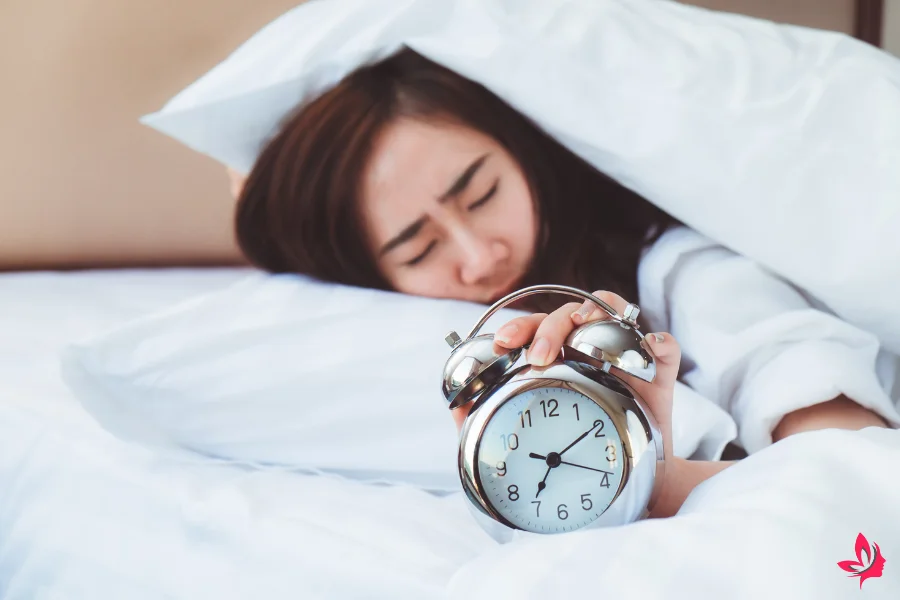Waking up in a dream meaning is a topic that leaves many people curious and sometimes confused.
This experience often points to revival, freedom, and a new level of self-awareness in one’s life.
If someone wakes up while dreaming, they may reach deeper consciousness and spiritual insight.
Some people describe this as a false awakening.
People often wonder if these dreams carry a spiritual message or signal a change in their lives.
Understanding the possible meanings can bring peace of mind and help someone grow spiritually.
Understanding the Phenomenon of Waking Up in a Dream Meaning

Waking up in a dream meaning often involves complex layers of the mind and body.
People may experience false awakenings, lucid dreaming, or even sleep paralysis.
Each of these affects their sense of reality and connection to daily life.
What Are False Awakenings and How Do They Relate to Waking Up in a Dream Meaning?
False awakenings are dreams in which the sleeper believes they have woken up but are still dreaming.
These dreams can mimic a person’s daily routine so closely that they can be easily confused with real life.
Many people report going through everyday morning actions, like brushing or getting dressed, only to realize they’re still asleep.
False awakenings can sometimes repeat, creating a looping effect.
This shows how the subconscious mind can blur the lines between the dream world and the waking state.
Common triggers include stress, changes in routine, or disrupted sleep, which can affect mental health and sleep quality.
The Role of REM Sleep and Rapid Eye Movement in Dream Awareness
REM sleep is the stage where most vivid dreams happen.
During this phase, the brain is very active, and sleep researchers can measure rapid eye movement.
Waking up in a dream is often rooted in this stage because the mind is almost as alert as during waking life.
People who wake during REM sleep often remember their dreams more clearly.
Dream recall becomes stronger if the sleeper briefly wakes up or becomes self-aware, such as noticing something odd.
The unique brain activity in REM sleep can lead to experiences that feel more real and meaningful than regular dreams.
Disruptions in this stage may lead to sleep disorders or cause people to wake in the middle of the night with a clear memory of their dreams.
The link between REM sleep and dream experiences is well-studied by experts.
Exploring Sleep Paralysis and Its Connection to Waking State Experiences
Sleep paralysis is a feeling of being conscious but unable to move or speak.
This often happens when someone is falling asleep or waking up.
People may see vivid hallucinations and feel pressure on their chest.
This experience can happen during a false awakening or after waking from a bad dream.
Some people feel stuck between the dream world and waking state, unsure which reality is objective.
The phenomenon can be disturbing, but it is a common sleep event.
Sleep paralysis is linked to irregular sleep patterns, stress, and conditions like sleep apnea.
Keeping a regular sleep schedule and managing mental state with practices like dream journal writing may help reduce episodes.
How Lucid Dreaming Differs from False Awakening Dreams
Lucid dreaming happens when a person knows they are dreaming and gains some control over dream content.
This differs from a false awakening, in which the dreamer believes they are awake but is unaware that it’s a dream.
In lucid dreaming, the realization can lead to a profound experience.
Dreamers might alter their environment or test realities in ways not possible in real life.
Lucid dreams often bring feelings of freedom and creativity; some use them as a tool for personal growth or therapy.
False awakenings, on the other hand, can feel confusing and unsettling because they are so close to waking life.
Understanding the differences between these dreams helps with dream interpretation and can provide insights into mental health and the subconscious mind.
The Science Behind the Sleep Cycle and Its Impact on Dream Recall
The sleep cycle includes light sleep, deep sleep, and REM sleep.
Most people undergo these stages in sequence, repeating the cycle several times each night.
The timing of dream recall depends on which sleep stage a person wakes up in.
If someone wakes during REM sleep, they will likely remember their dreams in detail.
In contrast, waking up from deep sleep can make remembering dreams harder.
Good sleep quality and a regular sleep schedule often improve dream recall and make vivid dreams more likely.
Researchers find that recording dreams soon after waking helps capture small details that might be forgotten later in the day.
Keeping a dream journal and being mindful of daily routine can reveal patterns in dreams, offering clues about unresolved issues or periods of change.
Spiritual and Psychological Interpretations of Waking Up in a Dream Meaning

Waking up in a dream, a false awakening, can be a profound experience tied to the subconscious mind.
It sometimes connects to periods of stress or significant life changes.
Exploring spiritual and psychological viewpoints gives valuable insights for those seeking meaning behind such dreams.
Carl Jung’s Perspective on Dream Interpretation and the Subconscious Mind
Carl Jung believed the subconscious mind communicates through symbols, often using dreams as the medium.
A false awakening dream could signal a deeper encounter with one’s current mental state or unresolved issues.
According to Jung, these dreams may act as a mirror for the dreamer’s waking life.
Waking up in a dream can highlight the conflict between the conscious and unconscious worlds.
Small details, like familiar settings or people, may reflect real events or feelings.
Jung suggested that dream interpretation works best when considering the dreamer’s overall mental health and personal context.
Spiritual Awakening and the Symbolism of Waking Life Within Dreams
In spiritual contexts, waking up in a dream can represent a spiritual awakening or a call for deeper self-awareness.
Many see this type of dream as a sign to examine one’s daily routine or begin anew in real life.
Such dreams often symbolize the journey between different states of consciousness—a shift from automatic behaviors to mindful living.
They can remind people to reflect on spiritual growth and intentional choices.
Some belief systems view the experience as guidance from a higher power or the universe, encouraging the dreamer to notice overlooked aspects of their waking state.
It might signal a fresh start or a transformative experience in daily life.
Using Dream Journals to Decode Vivid Dreams and Recurring Dream Patterns
Keeping a dream journal is a practical tool for understanding vivid and recurring dreams, including false awakenings.
By recording small details and the emotional context of the dream, people can spot patterns related to stress or changes in their routine.
A simple table can make dream journal entries clearer:
| Date | Dream Summary | Emotions Felt | Notable Symbols | Possible Triggers |
|---|---|---|---|---|
| 2025-05-13 | Woke up in a dream, confused. | Anxiety, relief | Alarm clock | Change in work hours |
| 2025-05-15 | Repeated school setting dream | Nervous | School hallway | Upcoming exam |
Reviewing journals over time can highlight symptoms of this dream state and how these relate to mental health or life events.
The Connection Between Waking Up in a Dream and Mental Health
Experiencing waking up in a dream often overlaps with stress dreams, REM sleep interruptions, or symptoms tied to mental health conditions.
People with consistent sleep disturbances or anxiety may have more frequent false awakenings.
Understanding the link between such dreams and mental health is important.
Studies suggest repeated false awakening dreams may signal difficulty distinguishing between the dream world and waking life, especially after trauma or during high stress.
If these dreams impact sleep quality or cause distress, they may also relate to issues such as sleep apnea or post-traumatic stress disorder.
Recognizing these patterns can be the first step toward healthy sleep and emotional balance.
Biblical Meanings and Spiritual Growth: What Such Dreams Reveal About Your True Purpose
In biblical interpretations, waking up in a dream is sometimes seen as a message about spiritual growth or discovering one’s true purpose.
Biblical narratives often use dreams for divine communication, guiding the dreamer’s life path or current situation.
Some faith-based perspectives connect false awakenings with awakening to a new calling or being asked to evaluate ongoing choices.
Dream analysis, psychics, and biblical dream experts may suggest that such dreams encourage self-reflection or remind the dreamer to stay alert to signs from God.
For those who value spiritual symbolism, the context of the dream—including emotions, setting, and wake-up time—may reveal clues about personal growth or a fresh start in their spiritual journey.

Waking up in a dream meaning often points to deeper insights about the subconscious mind and how it connects to daily life.
Addressing these dreams involves understanding mental health, recognizing dream patterns, and making practical changes to support well-being.
Managing Stress Dreams, PTSD, and Sleep Disorders Through Dream Rehearsal Therapy
Many people experience stress dreams or nightmares tied to anxiety, post-traumatic stress disorder (PTSD), or sleep disorders.
Dream rehearsal therapy is a technique used to help manage these issues.
This therapy involves visualizing stressful or recurring dreams while awake and changing the outcome in one’s mind.
By practicing new endings or scenarios, people can reduce the impact of bad dreams and gain control over them.
For people with PTSD, dream rehearsal therapy can help reduce nightmare frequency, as shown by research from the National Institutes of Health.
Sleep specialists often use it as a non-invasive way to improve mental health and sleep quality.
Creating a Healthy Sleep Schedule to Improve Sleep Quality and Reduce False Awakening Episodes
A regular sleep schedule goes beyond basic healthy sleep tips. Setting a consistent bedtime and wake-up time helps regulate the sleep cycle.
This consistency leads to better sleep quality. It can also reduce episodes of false awakenings, which often occur during REM sleep.
Experts recommend avoiding screens before bed and limiting caffeine intake. Keeping the bedroom dark and quiet also supports a healthy sleep pattern.
People who struggle with waking up in a dream or are stuck in a false awakening often benefit from these basics. Good sleep hygiene helps the brain move smoothly through different sleep stages and lowers the chance of sleep disruptions.
| Healthy Sleep Tips | Description |
|---|---|
| Set consistent bed/wake times | Promotes regular sleep cycle and reduces disruptions |
| Limit screen time | Blue light affects melatonin and sleep quality |
| Avoid caffeine/alcohol | Minimizes sleep disturbances and increases deep sleep |
| Create restful environment | Dark, cool, and quiet rooms promote sound sleep |
Recognizing Symptoms of Common Dream States and Their Relation to Daily Routine
Different dreams, such as lucid dreaming, false awakenings, and vivid dreams, can feel intense or confusing. Many people notice these dreams happen more during high stress, changes in routine, or mental fatigue.
Recognizing the symptoms of these dream states helps people see connections between their sleep and daily life. Common signs include feeling alert in the dream world or being able to control dreams.
Some people experience a sense of “waking up” within the dream but remain asleep. These experiences often occur during rapid eye movement (REM) sleep, when the brain is most active.
Stress, irregular schedules, and restless nights may increase the chances of such dreams. Understanding these links can support a healthier routine and improve mental well-being.
How Small Details in Dreams Can Provide Valuable Insights into Your Current Situation
Attention to small details during dream analysis can reveal much about a person’s emotional or mental state. Objects, settings, or actions in a dream may symbolize real-life worries, hopes, or unresolved issues.
For example, being unable to move in a dream may point to feeling stuck in waking life. These small details act like a mirror for the subconscious mind.
Keeping a dream journal helps people spot repeating themes or triggers tied to stress or change. According to Meaningful Life, understanding these symbols during dream interpretation can lead to deeper self-awareness.
Embracing New Beginnings and Personal Growth Through Transformative Dream Experiences
Waking up in a dream can feel like a profound experience linked to spiritual awakening or personal transformation. People often see these dreams as signals of a fresh start or an opportunity for change.
After a false awakening, many feel encouraged to look at their current situation and make positive changes in their daily routine. This type of dream may signal readiness for a new beginning or a shift in perspective.
Embracing these dreams as part of a spiritual journey helps people learn about themselves. Carl Jung believed dreams reflect true purpose and offer valuable insights into personal growth.
Frequently Asked Questions
People often question the spiritual and emotional impact of waking up in dreams. Many wonder what certain dream symbols mean and how experiences like lucid or vivid dreams affect sleep and well-being.
What does it mean when you wake up within a dream?
Waking up within a dream, often called a false awakening, happens when a person thinks they have woken up but is still dreaming. This can make someone feel confused or anxious.
Some believe it is a sign to pay attention to inner thoughts or feelings and may represent a need for awareness in life.
What does drowning symbolize in dreams?
Drowning in dreams often represents feeling overwhelmed or trapped in life situations. Spiritually, it can indicate emotional struggles or a fear of losing control.
Some spiritual teachers see it as a signal to address hidden worries or stress.
What does waking dream mean?
A waking dream is an experience where someone feels awake but still dreams. It can involve realistic sensations, thoughts, or emotions.
This is often linked to the subconscious mind blending with conscious awareness.
What does it mean when you wake up in the same dream?
Waking up in the same dream, or having the same dream scene after waking, may mean the mind is processing a specific issue. This can be linked to stress or a need to resolve something from the past.
Spiritually, it may be a message that a critical lesson needs attention.
Is lucid dreaming safe?
Lucid dreaming, in which the dreamer knows they are dreaming and can sometimes control the dream, is usually safe for most people. However, some may feel tired if they lucid dream too often.
Problems can happen if sleep quality drops, but lucid dreaming does not cause direct physical harm.
What happens when you wake yourself up in a dream?
When a person realizes they are dreaming and chooses to wake up, they often feel a sense of control. This can stop nightmares or end uncomfortable situations.
After waking, the person may feel relief or remember the dream events more clearly.
Do vivid dreams mean good sleep?
Vivid dreams can happen for many reasons. Sometimes they are linked to deep sleep and healthy brain activity.
Strong or disturbing dreams can also happen during poor sleep or stress. Vivid dreams do not always mean restful sleep; sometimes they signal waking up too often or feeling unsettled at night.
What is a spiritual false awakening?
A spiritual false awakening happens when a person feels they have woken from sleep but are still dreaming. This can lead to questions about reality or spiritual awareness.
Some believe it is a sign to look for hidden truths, messages from the subconscious, or a push toward personal growth.
What’s it called when you dream while awake?
Dreaming while awake is often called daydreaming or having a waking dream. This can include vivid scenes or stories in the mind while a person is alert.
Sometimes, people describe this as a dissociative state, where the mind drifts from the present.
Why do I wake up in a dream but can’t?
When you try to wake up in a dream but cannot, sleep paralysis or intense dreaming may be the cause. This can feel frightening or frustrating.
Experts say these moments often happen during rapid eye movement (REM) sleep. During REM sleep, vivid dreams are common, and the body cannot move temporarily.




